Post-race recovery the Garmin way
Behind the scenes with Millar and Van Summeren
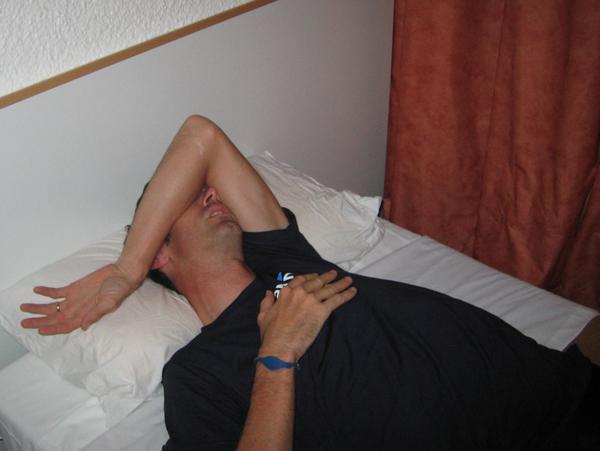
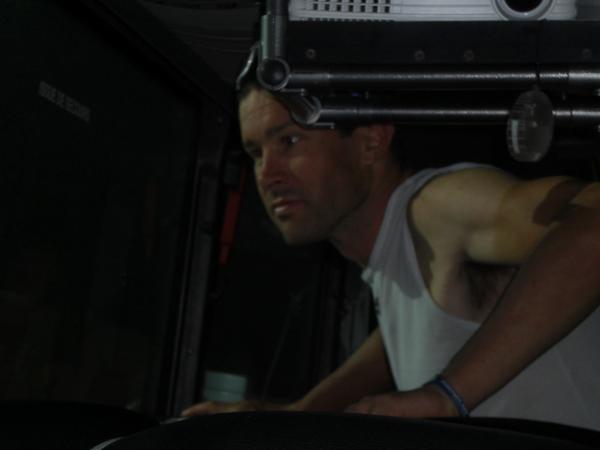
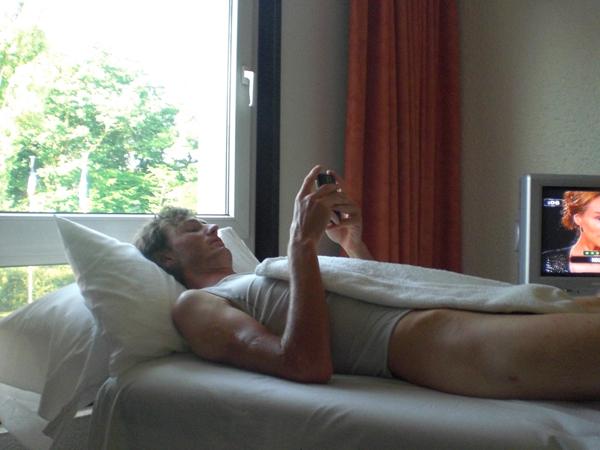
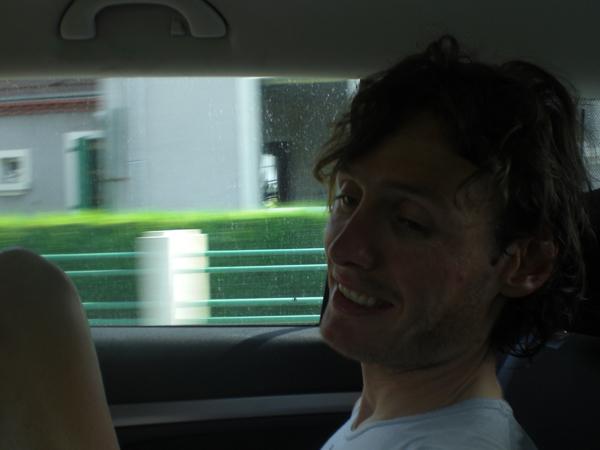
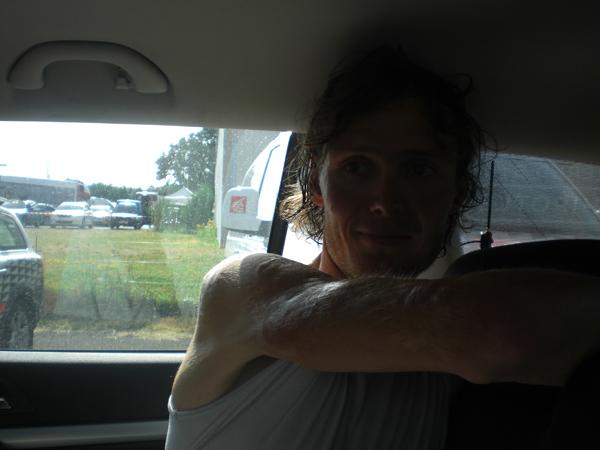
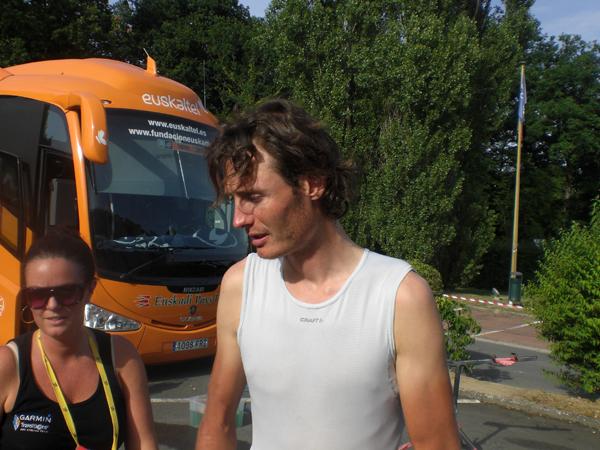
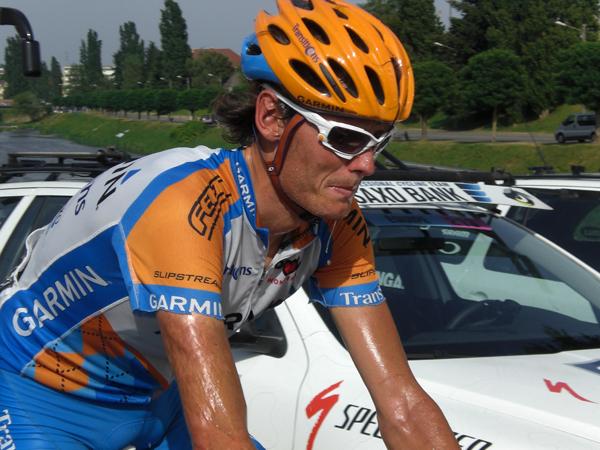
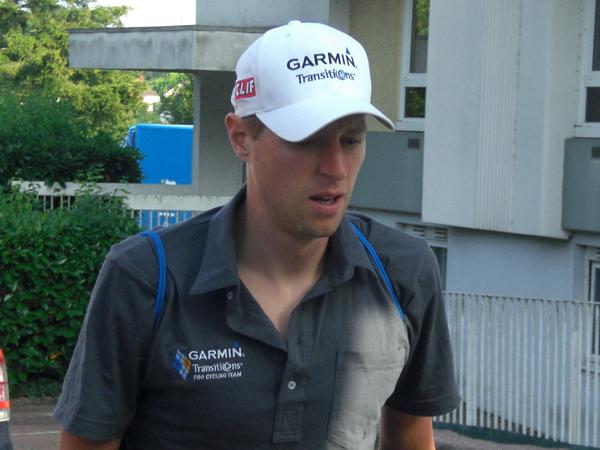
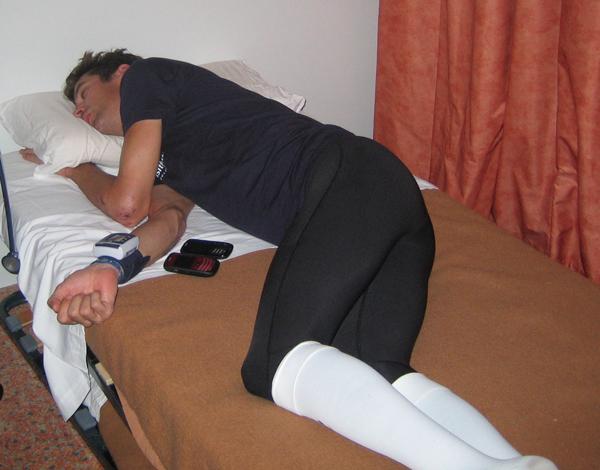
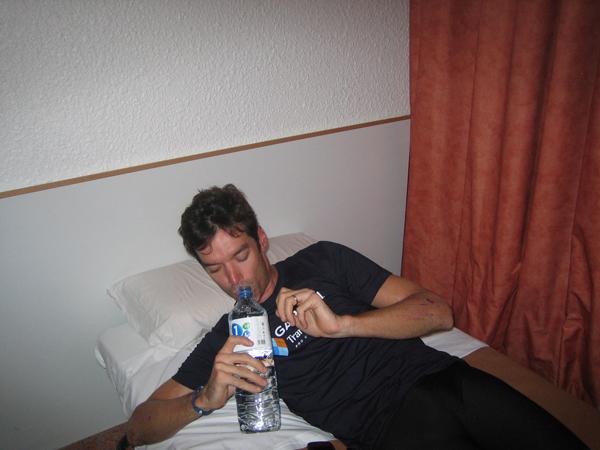
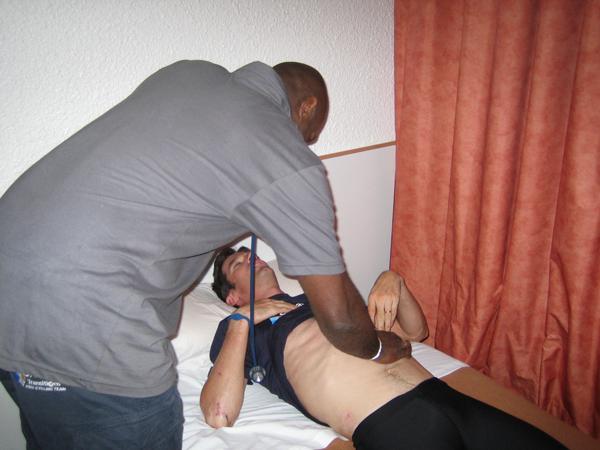
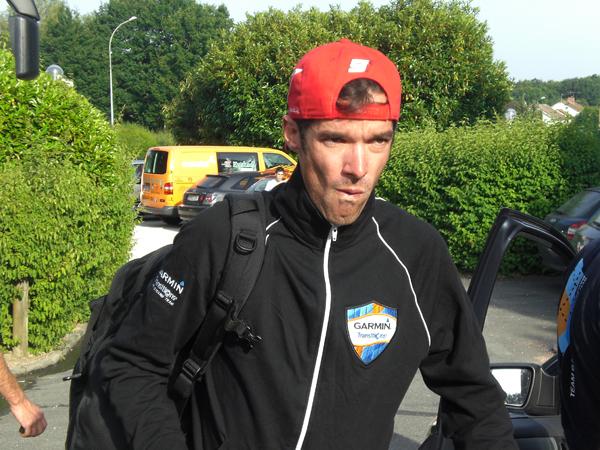
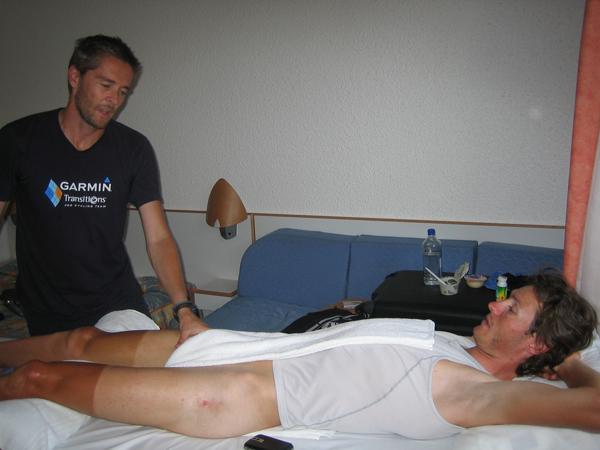
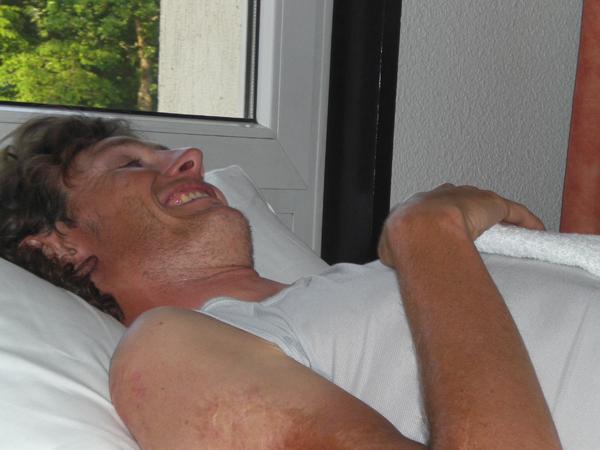
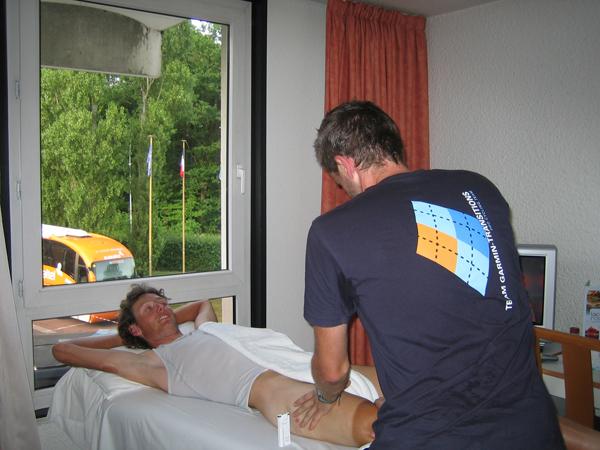
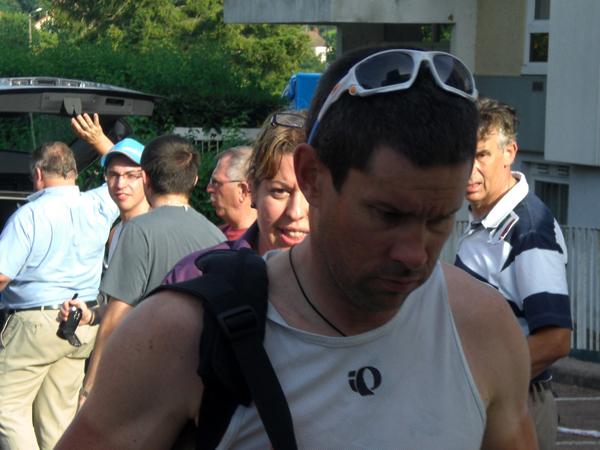
Stage 6: 8:30 pm. David Millar’s hotel room.
“Need sleep. I must sleep,” mutters Millar.
“This is without doubt the most banged up I’ve been in a Tour. My ribs are not broken but the intercostals and the ligaments are agony. I’ve got a bad groin strain too but it’s only sore when I get out the saddle or I put my shoes on. I had a fever last night and a stomach bug, and I couldn’t eat.”
“I was hurt in 2001 when I crashed in the prologue but that was just one crash and these are the effects of three or four different falls. They’re all different injuries. All sides of my body from all different angles and it’s not healing as quickly as I would like.”
“Today was horrible. One of those days when you just want to curl up at the side of the road. It’s never-ending. It should have been an easy stage but it felt like a mountain stage. I can eat again now. That’s good.”
“The Tour de France is not fun at the moment. This is when you want to be at home and not at the Tour.”
“I must take something to sleep. Normally I try not to take anything but that’s the only thing I can do at the moment. I have to make sure I sleep. Must sleep. Need sleep.”
Get The Leadout Newsletter
The latest race content, interviews, features, reviews and expert buying guides, direct to your inbox!
The doctor and I leave the room as Millar drifts off to sleep. He’ll be woken in an hour for massage and dinner.
“He has been given vitamin C, an anti-inflammatory, and a painkiller. Something to help sleep, too. He’ll recover in the next few days but he needs to make it to the rest day. That will give him some relief,” the doctor says before departing to Zabriskie’s room to check on the American’s health.
“We have the WADA list and the WADA code with us,” says team boss Vaughters in the lobby.
“It’s the least and the most of our worries. It’s very clear on what’s legal and what’s not. In terms of chiropractic work, temperature work and nutrition, we do a lot more than some other teams.”
Van Summeren's post-stage strategy
Several hours earlier in Gueugnon, Johan Van Summeren jumps into a Garmin team car destined for the hotel. The rest of his teammates are still clambering onto the bus as the Belgian pulls away.
“I want to be in the shower as soon as possible. I want the extra half hour in bed. If I do that every day at the Tour it adds up to around 12 hours by the time I get to Paris. That makes a difference. The moment you stop recovering is the moment that you have one foot home. The key to everything is recovery,” he says as he takes a long swig from a pre-prepared slushy.
The driver cranks up the air con to sub-zero temperatures and the second race of the day begins. This race is to recover as quickly as possible so that Van Summeren can do this all over again tomorrow.
“You can be ridden out of the Tour if you don’t recover properly,” said Van Summeren. “When I get to the hotel I’m going to eat some rice, lie down, have a massage, have dinner, lie on the bed again, sleep, get up and race again.”
He quickly reaches into the seat behind him and starts catching up on messages from his Blackberry as the car winds in and out of traffic. Vaughters, also on his Blackberry, is in the front passenger seat.
“We put a significant amount of investment into rider recovery. It’s crucial. Johan might be in the car with us, but right now Ryder Hesdejal is in the team bus wearing an ice body suit in order to reduce his core temperature,” the Garmin boss says before turning back to his blackberry.
“The stress around the Tour makes it so tough,” says Van Summeren, who is riding his seventh edition. “It’s the toughest race in the world because of the amount of stress, nothing more. You have to be so focused out on the road. In Belgium you had nearly two million people out on the road. You lose every feeling in the peloton because you don’t hear inside the bunch. You ride with people one metre from you yelling in your ear all day. When you get to your room you just want quiet.”
Back in the hotel and the wiry Van Summeren is greeted by soigneurs in the lobby. Key in hand and suitcase in tow, he shuffles to his room. Twenty minutes later and he’s on the massage table as Toby Watson goes to work.
“I don’t know if any team had as bad a day as we did on the Stockeu. Over half the team went down,” Watson says as he turns on his stereo and Van Summeren stretches out his gangly limbs on the treatment bed.
“But each day is different. Some guys recover faster than others. I’ve done a lot of work with Millar in the last few days. He’s had a few treatments. His muscles are tightened up like crazy.”
Each professional is different though. Some, like Van Summeren, take every precaution they can to make sure that when they’re on the start line the next day their body is in its best possible condition. Some on the other hand may skip massage.
“There are good pros and not good pros. This guy,” he says looking at the table, “knows exactly what he needs and he looks after himself in the right way.”
Van Summeren lifts his head slightly and adds, “I wouldn’t feel at ease at the start line tomorrow if I’d not had a massage, had a few beers and then had to take on some mountains.”
Garmin are down to eight riders in the race after Christian Vande Velde was forced out through injury in the opening few days. According to Watson, Vande Velde knew that the writing was on the wall almost as soon as he crashed. “It’s part of my job when you have to pull someone from a race. It’s not easy but you have to do it. When it’s the Tour though you have to push and stick around.”
“Christian has had enough major injures and he knew he’d broken at least one rib. If it had been the final day he would have started, but the Tour hadn’t really begun.”
“It’s not his first Tour,” says Van Summeren, who scoops mouthfuls of rice into his mouth as Watson begins what looks like a painful scraping of muscle tissue. “But with a rider like Vande Velde there was a lot of pressure on his shoulders, he was our team leader and he broke two ribs and he’s just not the guy who can finish 40 minutes down in the mountains. That’s not good for his image or his head.”
Van Summeren is done. He dresses and makes his way back to his room which is just a few doors away. At the end of the corridor the team doctor taps on another rider’s door before quietly entering.
In the morning Millar comes down to breakfast. He looks better but not exactly a picture of health. A night’s sleep and some down time have perked him up. “Not as bad as yesterday,” he mumbles as he heads for breakfast.
Two hours later and the Garmin bus pulls up in Tournus for the start of stage 7. All eight remaining riders look moderately fresh, although their bandages and tape show the perils and wounds from six hard days of racing in the Tour de France. The Tour rolls on.
Daniel Benson was the Editor in Chief at Cyclingnews.com between 2008 and 2022. Based in the UK, he joined the Cyclingnews team in 2008 as the site's first UK-based Managing Editor. In that time, he reported on over a dozen editions of the Tour de France, several World Championships, the Tour Down Under, Spring Classics, and the London 2012 Olympic Games. With the help of the excellent editorial team, he ran the coverage on Cyclingnews and has interviewed leading figures in the sport including UCI Presidents and Tour de France winners.
